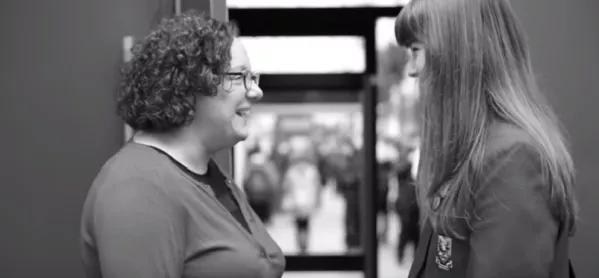Mary Bousted: ‘Today’s grammar school decision is bad news not only for poor children but also for social cohesion’

So, let battle commence. Get your hard hats on and your shields ready, because there is going to be a huge row about Nicky Morgan’s decision to allow Weald of Kent school in Tonbridge to open a girls’ annexe in Sevenoaks, Kent, with 450 places. There can be little doubt that this decision will open the door for more grammar schools to apply to expand their intake.
Nicky Morgan’s decision marks a gradual change of tone in Tory education policy. Gone is the emphasis on “closing the gap” between advantaged and disadvantaged pupils, in favour of “excellence”. If a school provides an excellent education, it should, so the argument goes, be allowed to expand.
The problem with this argument, when it comes to grammar schools, is that their expansion creates more inequality and worse life chances for the children whose parents cannot afford to pay for the private tuition needed to pass the 11-plus exam. I lived in Kingston, south-west London, for many years, and witnessed at close hand the lengths my daughters friends’ parents would go to in order to secure tutors who would “cram” their children for the 11-plus exam.
It was a thriving business, and one beyond the reach of the parents of intelligent but poor children, who had no chance of passing the test without private tutoring because the key stage 2 curriculum did not prepare them for the 11-plus (a fact as true today as it was 10 years ago). This was not, I realised, a selection based on intelligence, but on disposable income.
The facts are undeniable and unpalatable. The alternative to grammar schools in selective areas is schools whose intake is skewed towards poorer children. At nearly all grammar schools, fewer than 10 per cent of pupils are eligible for free school meals. Some 98 of the 164 grammar schools have fewer than 3 per cent, and 21 have fewer than 1 per cent. The Institute for Fiscal Studies has found that deprived children are significantly less likely to go to a grammar school than their more advantaged peers, even when they achieve the same academic levels aged 11.
These inequalities of birth, exacerbated by academic selection, continue throughout life. The average hourly wage difference between the richest 10 per cent and the poorest 10 per cent of earners in grammar school areas is over £4 more than in non-selective areas.
Nor have grammar schools ever been a vehicle for social mobility. Even in their heyday in the 1950s and 1960s, a pitiful 0.3 per cent of grammar school pupils with two A-levels were from the skilled working class.
Whatever your views on Michael Gove - the most marmite of politicians - he would not have approved the Weald of Kent school’s application to expand its intake by opening a satellite school 10 miles away from its current location. For all his faults as secretary of state for education, Gove understood that academic selection was not a vehicle for social mobility.
Another Michael (Wilshaw, Sir), Her Majesty’s Chief Inspector, said recently that although he was hearing many voices advocating the return of grammar schools, no one was arguing for the return of secondary moderns. But that is what the real, lived effect of grammar school expansion will be for those children without the social advantages necessary to prepare for, and pass, the 11-plus.
A mountain of research and evidence shows that one of the most powerful ways to close the achievement gap between advantaged and disadvantaged children is to create a school system where children of all classes and abilities go to the same school. School is the place where children and young people become socialised. It is where they should learn to get along with others who may have very different life experiences and attitudes to themselves. The more segregated the school intakes, the fewer opportunities children and young people will have to learn these lessons in life.
Today’s decision is bad news not only for poor children but also for social cohesion.
Dr Mary Bousted is general secretary of teachers’ union the ATL
Keep reading for just £1 per month
You've reached your limit of free articles this month. Subscribe for £1 per month for three months and get:
- Unlimited access to all Tes magazine content
- Exclusive subscriber-only stories
- Award-winning email newsletters



